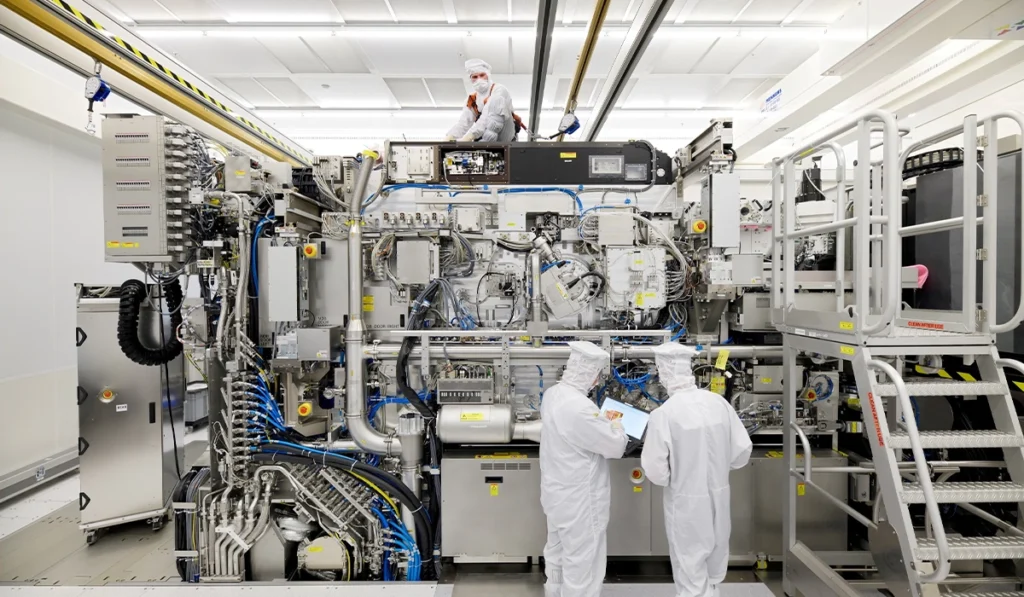- Web Desk
- 10 Minutes ago
US to make chipmaking harder for Intel, Samsung in China

WASHINGTON: The United States will make it more difficult for global chipmakers Samsung, SK Hynix and Intel to produce chips in China by revoking permission for the companies to receive American semiconductor manufacturing equipment there, according to the Federal Register.
Earlier this week, President Donald Trump told reporters on Monday that China has to give the United States [rare earth] magnets or “we have to charge them 200% [US] tariff or something”.
Read more: Trump to China: Give magnets or face 200% tariffs
US-CHINA TRADE WAR
The threat came as there is no end in sight to the ongoing US-China trade war, which has become a global issue after Trump introduced high tariffs policy to target even the allied nations like the European Union, Japan and South Korea.
Meanwhile, the Trump tariffs have hit India hardest, which, under Prime Minister Narendra Modi, was aiming at becoming a global manufacturing hub while taking advantage of the US-China trade and the restrictions these two giants have imposed on each other.
Read more: US tariffs to hit India from Wednesday, impacting $87bn exports
SEMICONDUCTOR EQUIPMENT
The US Commerce Department had granted the authorisations for the companies to make chips in China as exceptions to sweeping restrictions on the sale of semiconductor equipment to China in 2022.
However, the companies will now need to obtain licenses to buy the equipment in China.
The licensing change will likely reduce sales to China by US equipment makers KLA Corp, Lam Research and Applied Materials.
At the same time, the move may help domestic Chinese equipment makers, whose tools can fill gaps.
They also may help Micron, a major US competitor to South Korea’s Samsung and SK Hynix in the memory chip sector.
However, the authorisations will not take effect for 120 days, according to the posting.
Intel sold its Dalian NAND memory manufacturing facility in China to Seoul-based SK Hynix several years ago, but continued to manufacture wafers into 2025.





